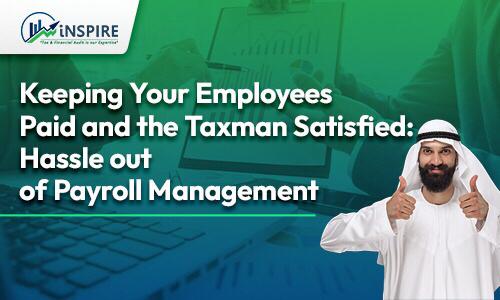
Corporate Tax Dynamics: A Comprehensive Guide to Understanding UAE's Tax Landscape
Unlock the secrets of corporate taxation in the UAE with our comprehensive guide. Explore the nuances of the tax-free environment, VAT implementation, free zone advantages, transfer pricing rules, and anti-tax avoidance measures.
The United Arab Emirates (UAE) has emerged as a global business hub, attracting multinational corporations and entrepreneurs due to its strategic location, robust infrastructure, and business-friendly environment. One of the key factors contributing to its appeal is the unique tax landscape. The UAE follows a distinctive tax system that significantly differs from those of many other countries. In this comprehensive guide, we will delve into the intricacies of corporate tax dynamics in the UAE, unraveling the key principles and regulations that govern taxation in this thriving business destination.
Overview of the UAE Tax System
Unlike many countries, the UAE does not impose federal income taxes on corporate entities. Instead, individual emirates have the authority to determine their tax policies. Two emirates, Abu Dhabi and Dubai have introduced a corporate income tax, primarily targeting the oil and banking sectors. However, the majority of the UAE, including popular business hubs like Dubai, maintains a tax-free environment for corporations.
You May Also Like To Read: Corporate Tax Landscape: Strategies for Success
VAT Implementation
While the UAE does not impose corporate income tax at the federal level, it introduced the Value Added Tax (VAT) in 2018. VAT is a consumption tax applied at each stage of the supply chain, ultimately borne by the end consumer. The standard VAT rate is 5%, and it applies to a wide range of goods and services, including some exempt and zero-rated items. Businesses operating in the UAE need to comply with VAT regulations, and understanding the nuances of this system is crucial for effective tax management.
Free Zones and their Tax Advantages
The UAE has numerous free zones, each designed to cater to specific industries. Free zones offer a range of incentives, including 100% foreign ownership, full repatriation of profits and capital, and exemption from import and export duties. While companies established within free zones are generally exempt from corporate income tax for a specified period (usually 15-50 years), it's essential to be aware of the specific regulations of each free zone, as they can vary significantly.
Recommended For You: Internal Audits in the UAE: A Step-by-Step Guide
Transfer Pricing Rules
In line with international best practices, the UAE has implemented transfer pricing rules to ensure that transactions between related entities are conducted at arm's length. Understanding and adhering to these rules are critical for businesses engaged in cross-border transactions. Proper documentation and compliance with transfer pricing regulations help prevent tax evasion and ensure transparency in financial transactions.
Anti-Tax Avoidance Measures
To align with global efforts to combat tax evasion and base erosion, the UAE has introduced anti-tax avoidance measures. These include Controlled Foreign Company (CFC) rules and Economic Substance Regulations. CFC rules target income artificially shifted to low-tax jurisdictions, while Economic Substance Regulations ensure that companies conducting certain activities have substantial activities and presence in the UAE.
Tax Treaties
The UAE has an extensive network of double taxation avoidance agreements (DTAs) with various countries. These agreements play a crucial role in mitigating the impact of international taxation on businesses operating in multiple jurisdictions. Understanding the provisions of relevant DTAs is essential for businesses to optimize their tax liabilities and prevent double taxation.











